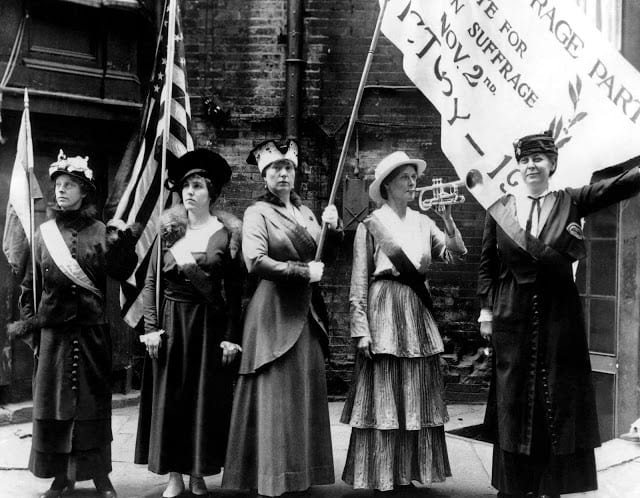If you visited the Google homepage in mid-January, you may have noticed a tribute to the women’s suffrage movement. And if you clicked the banner, you were taken to a landing page of search results for “Alice Paul,” a famous American suffragist who is known for – among many other accomplishments – vociferous opposition to abortion. In fact, there are no feminist foremothers on-record who supported abortion. Pro-Life feminists were not a faction of the early feminist movement; early feminists were, without known exception, Pro-Life.
Raised a Quaker, Paul believed in the equality of the sexes from her earliest days, so joining the suffrage movement perhaps came naturally to her. Prior to becoming a suffragist, Paul earned a master’s degree in sociology, with minors in economics and political science, and completed a doctoral thesis entitled, “Toward Equality.” Paul is well-known for her role in politics, and considered her role in the 1920 passage of the 19th Amendment – guaranteeing women the right to vote – “the most useful thing she ever did.”
To that end, Paul authored the Equal Rights Amendment, which was designed to expand women’s rights in America. The ERA was always considered controversial, and support floundered off and on for decades, and with the passage of time, a new wave of radical, anti-Life feminists was born. These feminists attempted to hijack the ERA and take the proposal in a direction never intended by Paul, arguing that a universal right to abortion on-demand should be included in language affirming the equality of women.
Paul rejected this interpretation in no uncertain terms, famously stating her belief that “Abortion is the ultimate exploitation of women.”
Google’s tribute featured two key phrases: “Deeds not words” and “Votes for Women.” Votes for Women was the name of the paper published by the Women’s Social and Political Union, of which Paul was a member. Deeds not words was the motto of the suffragists who had witnessed empty promises and blatant discrimination by civil leaders in response to their push for equality. The suffragists knew that they would not achieve their end unless they took decisive action. Paul’s commitment to action spurs today’s Pro-Lifers who work tirelessly to ensure a Pro-Life future to our coming generations of women.
Read more about Pro-Life heroine Alice Paul at Feminists for Life.


